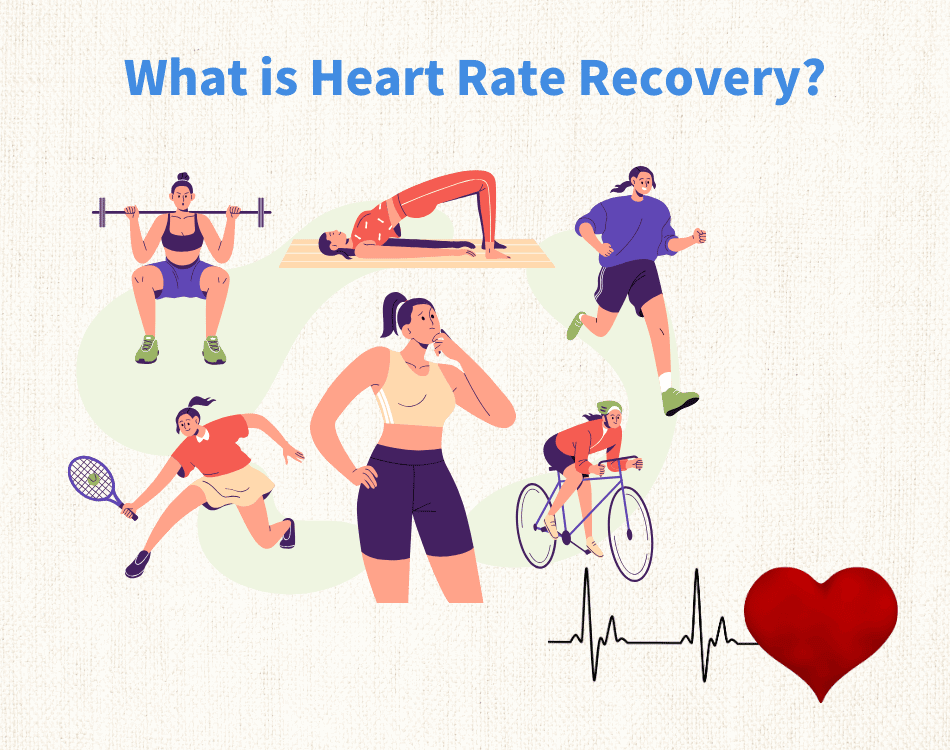Unlocking the Secrets of Your Heart: What a 30 BPM Recovery Really Reveals About Your Fitness Journey!
Heart rate recovery is an essential indicator of cardiovascular fitness and overall health. It refers to how quickly your heart rate returns to its resting state after exercise, serving as a vital sign of your body's ability to recover. A heart rate recovery of 30 beats per minute (BPM) means that your heart rate drops by 30 beats within a specific period after intense physical activity. This metric is significant because it reflects not only your fitness level but also your body’s efficiency in recovering from exertion. Understanding what a 30 BPM recovery means can help you gauge your progress in fitness and overall health, making it an important factor to monitor as you embark on your fitness journey.

The Importance of Heart Rate Recovery
The process of heart rate recovery is a physiological response that occurs after exercise when the heart rate begins to slow down. This recovery process is crucial because it indicates how well your cardiovascular system functions. Generally, a faster recovery rate is associated with better heart health and fitness levels. For instance, elite athletes often experience rapid recovery rates, sometimes dropping their heart rates by 50 BPM or more in a minute. Conversely, individuals with lower fitness levels may take longer to recover. Recovery rates can vary significantly among individuals due to factors such as age, fitness level, and overall health. By monitoring heart rate recovery, individuals can gain insights into their cardiovascular fitness, helping them tailor their training regimens to improve their endurance and heart health.
Understanding 30 BPM Recovery
A 30 BPM heart rate recovery means that your heart rate decreases by 30 beats within the first minute after exercise. Typically, a recovery of 12 to 20 BPM is considered average for many individuals, while anything higher than that is indicative of a more conditioned cardiovascular system. A 30 BPM recovery can signify good cardiovascular fitness, suggesting that your heart and lungs are effectively working together to supply oxygen to your muscles during and after exertion. Comparatively, those with lower recovery rates may need to focus on improving their cardiovascular fitness through regular aerobic exercises, strength training, and other fitness activities. Understanding where you stand with a 30 BPM recovery can help set realistic fitness goals, helping you track your progress over time.
Factors Influencing Heart Rate Recovery
Several factors can influence heart rate recovery, significantly affecting how quickly your heart rate returns to normal after exercise. Age is one of these factors; as we age, our heart's efficiency may decline, leading to slower recovery rates. Fitness level also plays a crucial role; individuals who engage in regular physical activity tend to recover faster due to better cardiovascular conditioning. Hydration is another significant aspect; dehydration can impair heart function and prolong recovery times. Additionally, overall health conditions, including stress levels and sleep quality, can greatly impact recovery rates. Lifestyle choices, such as smoking or a poor diet, can also hinder heart rate recovery, making it vital to adopt healthy habits to optimize your cardiovascular health.
Practical Tips for Improving Heart Rate Recovery
Improving your heart rate recovery can greatly enhance your overall fitness and health. One effective method is to incorporate interval training into your routine, which involves alternating between high-intensity and low-intensity exercises. This type of training can improve your cardiovascular fitness and increase your heart’s efficiency. Additionally, ensuring adequate hydration before, during, and after workouts can support faster recovery rates. Prioritizing rest and recovery days is also crucial; your body needs time to repair and strengthen itself after strenuous exercise. Other lifestyle modifications, such as reducing stress through mindfulness or yoga and ensuring quality sleep, can contribute positively to heart rate recovery. By focusing on these areas, you can enhance your recovery rate and overall fitness journey.
Enhancing Your Understanding of Heart Rate Recovery
In summary, heart rate recovery is a critical marker of your cardiovascular fitness and overall health. A heart rate recovery of 30 BPM is indicative of a well-conditioned cardiovascular system, providing insights into your fitness journey. By understanding the significance of heart rate recovery and its influencing factors, you can take actionable steps to improve your recovery rates. Monitoring and striving to enhance your heart rate recovery can lead to better fitness outcomes and overall well-being. Embrace these changes, and you may find yourself on the path to not only improved health but a more fulfilling fitness journey.








